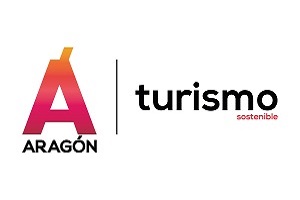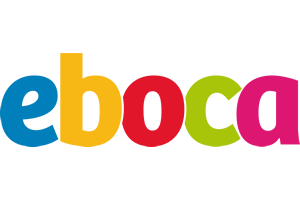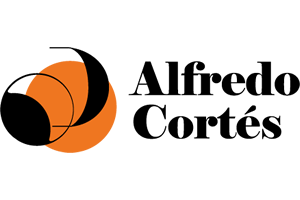Daniel Rey Saura (Zaragoza, 1973), managing director of the Instituto Aragonés de Fomento (IAF) from October 2023, knows Aragonese and Spanish business well, after a career in which he has held managerial positions in Aragonese and national companies, in sectors as diverse as technology, furniture, leisure park design or wine. Daniel Rey, who holds a degree in Economics from the University of Zaragoza and a master’s degree in Business Administration and Tax Consultancy, began his professional career in Barcelona. The new director of the Aragonese public institution, dedicated to the dynamization of companies in the region, belongs to the saga of the Aragonese company Muebles Rey, and has lived in places like Barcelona, Galicia or London. Daniel Rey has been president of the Family Business Association of Aragon from 2016 to 2019, member of the Competitiveness Council of Aragon from 2015 to 2019 and member of the Franchisers Association from 2011 to 2018.
What challenges have you set for this stage at the head of the IAF?
To put the focus on the company. To attend to them and to dynamize the economic fabric of Aragon.
What are the IAF’s main lines of work for this period?
The IAF, as an entity of the Department of Economy, Employment and Industry of the Government of Aragon, has to dedicate itself mainly to two things. One of them is to attend and help any Aragonese company that requires support from the administration. The other is to be a dynamic tool for the economic fabric of Aragon, with strategic projects, with initiatives of all kinds that can help the region. In order to make Aragon a more economically sustainable region in terms of competitiveness, which facilitates the structuring of the territory and employment.
In your professional career you have worked for different companies and multinationals, so you have first-hand knowledge of the reality of Aragonese companies and those in the rest of Spain. What would be the main weaknesses and opportunities, from your point of view, that Aragonese companies are currently facing?
Having been here and outside Aragon, having known the family business and different sectors, I see that we have a golden opportunity. Aragon is in a virtuous circle, although that does not mean that things will happen by themselves, nor that success is guaranteed. But I do believe that we have a series of traditional and emerging sectors that are at a key moment and with a very high level of activity development. Export figures are breaking records: Aragonese exports increased by 6.3% year-on-year in January, reaching a value of 1,412 million euros, which represents the best January ever, according to data from the Ministry of Economy, Trade and Enterprise. In addition, the stability that exists in this region at public and private level favors the development of this investment. Therefore, I believe that we have the framework and the right ingredients to continue turning this region into a competitive, innovative and growing territory. Regarding the ‘must’, perhaps we Aragonese need to believe it more, to give more visibility to what we have and to communicate better the many innovative and leading business projects that exist in this region.
 Regarding the export data you mention, do you believe that Aragonese companies are exporters?
Regarding the export data you mention, do you believe that Aragonese companies are exporters?
Yes, and the figures speak for themselves. Small, medium and large companies in this region are doing very well in terms of exports. The sectors that exported the most during January 2024 were automotive (with an export value of 514.3 million euros, accounting for 36.4% of the total), food, beverages and tobacco (with an export value of 302.7 million euros, accounting for 21.4% of the total) and capital goods (with an export value of 187.6 million euros, accounting for 13.3% of the total).
In addition, Aragonese companies have support mechanisms within the department, such as Aragon Exterior, which does a fantastic job of supporting those companies that are competing abroad, or that want to go abroad to compete, including attracting foreign investment to this region. There is no doubt that going abroad is key, especially when Aragon’s market is limited in size.
Aragon is a logistic and technological center that is 300 kilometers away from four other national economic hubs: Madrid, Barcelona, the Basque Country and the Valencian Community. What is Aragon’s competitive advantage over the rest of the national centers for the establishment of companies?
Having access to more than 70% of Spain’s GDP within a radius of 300 kilometers is key. In addition, the stability that exists in this territory favors the development and traction of business projects, and we are a territory with natural resources, green energies, which also favors that development.
The IAF supports both consolidated companies and entrepreneurship. What would you say to someone who is thinking of starting from scratch and setting up a company in Aragon?
I would say that the administration does not have an interventionist mentality, but a facilitating one. That is to say, the initiative has to be private. The administration has to facilitate a regulatory, fiscal and bureaucratic framework as optimal as possible. And it has to support private initiative when it needs it, or in those areas where public intervention is strategic to facilitate this sustainable competitive model. But, in any case, I would say to the entrepreneur who has a business idea, to go ahead with it, and that there are many support resources in this community. I would also tell them to come to us, to one of those entities that are there to help. Because we really have many resources, in terms of advice, support and aid, which can help you to get started.

What are the biggest difficulties that an entrepreneur faces at the beginning of his business?
The biggest difficulty, as with everything in life, is knowing how to get up when you fall. Of course, you have to have a good business idea, but it is also important to be tenacious and know where you want to go. And for that you have to work every day, be focused, try again, and surround yourself (always) with good traveling companions.
Is Aragon a land of entrepreneurs?
Yes, and we have to be more so. And, above all, we have to give visibility to what already exists.
In addition to the support to the consolidated company and entrepreneurship, the IAF has programs to support franchises.
Yes, we have a Franchise Plan where we help companies in Aragon to expand under the franchise format. In Aragon, there are currently 56 franchises and 27 have emerged as a result of this plan. In addition to franchises, we have programs to support family businesses, training… but we want to focus on those programs that are strategic and tractors, without neglecting a single company in the emerging sector or in the traditional sector that needs the help of the administration. We are working on projects that help to permeabilize the arrival of data centers to the territory, support technology-based business projects, and make technology a tool to transform the traditional sector. This way we can give more visibility to the digital ecosystem, which is key to attracting new investment and attracting talent. We are also working on programs for growth and competitiveness. We believe that growth is essential if we want to be a more productive region and country. And there is no doubt that in order to achieve this, we must focus on innovation, and this innovation is closely linked to technology. We are also working on programs to professionalize SMEs, which is key in terms of both management and strategic planning.
The IAF also participates as a partner or coordinator of different projects co-financed by Community Funds.
We can talk about the Aragon European Digital Innovation Hub (EDIH) that together with the ITA and other institutions we are developing. It is a program in which Aragon is a reference at national and European level. We are talking about programs that are also aimed at promoting the employability of young people in the labor market, with a quite disruptive format, and more focused on different sectors in which we receive European funds and we try to make them reach the productive fabric in the most aligned way possible with the objective of facilitating a competitive economic fabric.
Within this line of competitiveness that you mention, there is also CSR. Do Aragonese companies have integrated Corporate Social Responsibility?
The truth is that yes, it is very integrated in the productive fabric, and it adds value. There are already almost 1,500 companies that have the Aragon Social Responsibility Seal, which is awarded by the Government of Aragon together with the social partners UGT Aragon and CCOO Aragon and the business organizations CEOE Aragon and CEPYME Aragon. We also have the excellence program, focused not only on quality, but also on advanced training and professionalization. In any company it is necessary to work not only on the short, medium and long term, but also on the balance between the different areas of management and action within the company. What we try to do is to support those sectors in which there is the greatest need on the part of the SMEs in this region.

The IAF was founded in 1990, and since then it has witnessed the economic and social transformation of the autonomous community. In these 34 years, what are the major milestones that Aragon has experienced at the economic level?
The IAF has done many things during these thirty years: development of driving projects, especially in terms of infrastructure, and development of initiatives in the territory, with a focus on structuring and employment. And we must continue working along these lines. Technological parks have been developed, Dinópolis in Teruel is a good example, the ski resorts… we can only take our hats off to this.
But times change, the economic environment is not the same, the productive fabric is not the same, the business ecosystem is not the same, and we have to adapt to the new times and work, from our point of view, with more specialization, in a more collaborative way with all the agents.
Emprender en la escuela, Desafío Aragón or Concurso Idea are part of the IAF’s projects to promote entrepreneurship in Aragon. What are your objectives in this regard?
We are dedicated to the companies in Aragon, whether they are small, medium or large. I have been involved in the business world and I know that it is above all the small and micro enterprises that need more support from the entities in the business ecosystem. This does not mean that we are also available to large companies. I believe that the numbers of companies participating in entrepreneurship, training, social responsibility, excellence, franchisee, family business programs… are overwhelming. And, above all, more than quantity, we are looking for quality. We want to support companies where they need it and where they ask for it, both proactively and reactively.
You have been at the helm of the IAF for five months now, could you give us an assessment of how this experience is going?
I joined this project because of the challenge and the team. For the challenge of facilitating private initiative and favoring the economic development of the region, employment and the structuring of the territory, from a non-interventionist perspective, but rather a facilitating one. And of course with a spirit and mentality of collaboration and pooling resources. And I also came in because of the team, of which I am proud to be a part, with capabilities, enthusiasm and ideas.
What would be the purpose of the IAF for this period?
We are working on several fronts, but there is one that we consider very important: that as an administration we accompany the company where it needs it. And that means being a visible, clear center of dialogue and assistance for companies.















